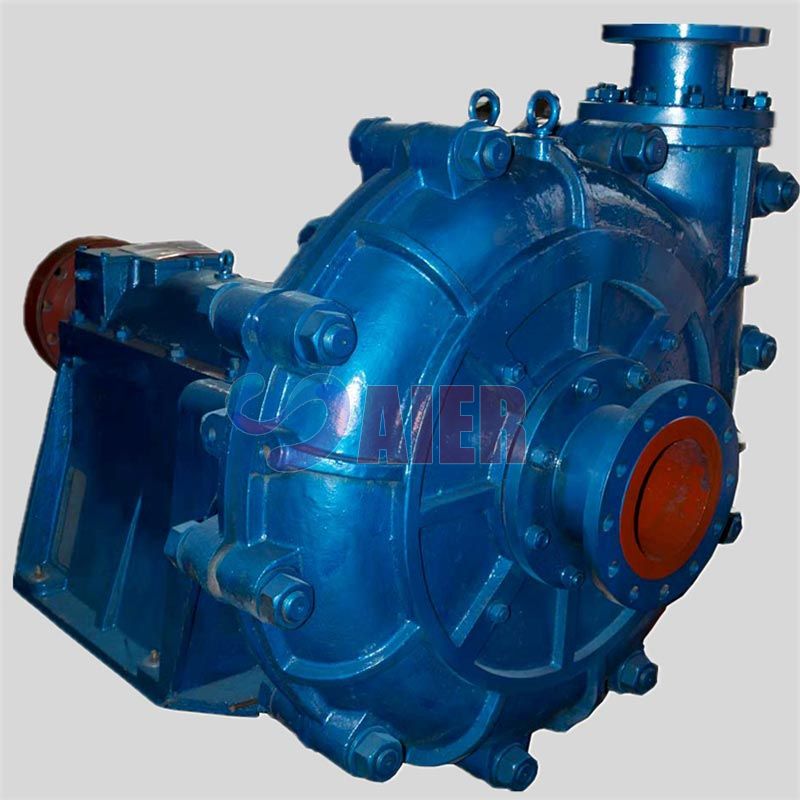Nov . 09, 2024 07:37 Back to list
Centrifugal Pump Manufacturers for Efficient Wastewater Management Solutions
Centrifugal Wastewater Pump Factories An Overview
Centrifugal pumps play a crucial role in the management and treatment of wastewater. Their ability to move large volumes of liquid efficiently makes them indispensable in industrial applications, municipal wastewater treatment facilities, and agricultural settings. The manufacturing of centrifugal wastewater pumps requires a blend of advanced technology, precision engineering, and strict quality control to meet the varying demands of the wastewater industry.
Understanding Centrifugal Pumps
Centrifugal pumps operate primarily on the principle of centrifugal force. They use a rotating impeller to add velocity to the fluid, which is then converted to pressure as the fluid exits the pump. This design allows for the movement of various types of wastewater, from clean water to viscous and solid-laden sewage. Their versatility and efficiency make them an attractive choice for many pumping applications.
Role of Factories in Pump Production
The production of centrifugal wastewater pumps occurs in specialized factories, which are equipped with cutting-edge machinery and technology. These facilities are designed to handle the specific demands of pump manufacturing, including the assembly of various components, such as impellers, volutes, seals, and motors. Efficient factories not only optimize the production process but also ensure high-quality standards are maintained throughout.
1. Design and Engineering The manufacturing process begins with design and engineering. Experienced engineers use computer-aided design (CAD) software to model pumps before they are produced. This process allows for the optimization of pump performance, taking specifics such as fluid viscosity, temperature, and flow requirements into account.
2. Material Selection Selecting the right materials is critical in pump manufacturing. Wastewater can be highly corrosive and abrasive; therefore, factories often use high-grade stainless steel, cast iron, or specialized alloys that can withstand demanding environments. The choice of materials not only affects durability but also maintenance and operational efficiency.
3. Precision Manufacturing Factories utilize advanced machining equipment to manufacture pump components with high precision. CNC machines, lathes, and milling machines allow for intricate designs and ensure every part meets stringent specifications. This precision is vital, as it directly impacts the pump’s performance and reliability.
centrifugal wastewater pump factories

4. Assembly Process Once individual components are produced, they undergo an assembly process in controlled environments to prevent contamination and ensure quality. Skilled technicians assemble the pumps, incorporating efficient practices such as lean manufacturing to minimize waste and enhance productivity.
5. Testing and Quality Control Before the pumps leave the factory, they undergo rigorous testing to ensure they meet industry standards. This includes performance testing under various conditions, pressure tests, and even simulations of real-world operational scenarios. Quality control measures are in place at every production stage to identify and rectify potential issues early in the process.
6. Sustainability Practices In recent years, many factories have implemented sustainable practices in their manufacturing processes. This includes recycling materials, reducing waste, and employing energy-efficient machinery to minimize their environmental impact. Such practices not only meet regulatory requirements but also cater to the growing demand for eco-friendly solutions in industrial operations.
Market Trends and Future Directions
The global market for wastewater treatment is on the rise, driven by the increasing need for effective wastewater management solutions. With urbanization and industrialization, the demand for reliable and efficient centrifugal wastewater pumps is expected to grow. Factories are likely to invest in research and development to produce more efficient, cost-effective pumps that can handle complex wastewater compositions.
Moreover, the integration of smart technology, such as IoT and automation, is transforming manufacturing processes. Factories are beginning to incorporate intelligent systems that can monitor performance in real-time, predict maintenance needs, and optimize operations for enhanced efficiency.
Conclusion
Centrifugal wastewater pump factories are at the forefront of creating the tools necessary for effective wastewater management. By continually adapting to technological advancements and market demands, these facilities ensure the production of high-quality, reliable pumps. As global challenges related to water resources and environmental sustainability continue to grow, the role of centrifugal pumps in wastewater management will become increasingly crucial, making the factories that produce them essential players in this industry.
-
Top Submersible Pump Companies High Quality Manufacturers & Suppliers in China
NewsJul.08,2025
-
High Quality Seal for 5 Inch Dredge Pump Reliable China Manufacturer & Supplier
NewsJul.08,2025
-
High-Efficiency Slurry Sand Pump from Leading China Manufacturer – Durable & Reliable Solutions
NewsJul.07,2025
-
High-Quality Slurry Pump Made in China Durable Steel Mill Slurry Pump & Parts
NewsJul.07,2025
-
High Quality Excavator Dredge Pump Manufacturer & Suppliers from China – Reliable, Durable, Efficient Solutions
NewsJul.07,2025
-
Wholesale Slurry Pump Closed Impeller Supplier High Efficiency China Slurry Pump Closed Impeller
NewsJul.06,2025
